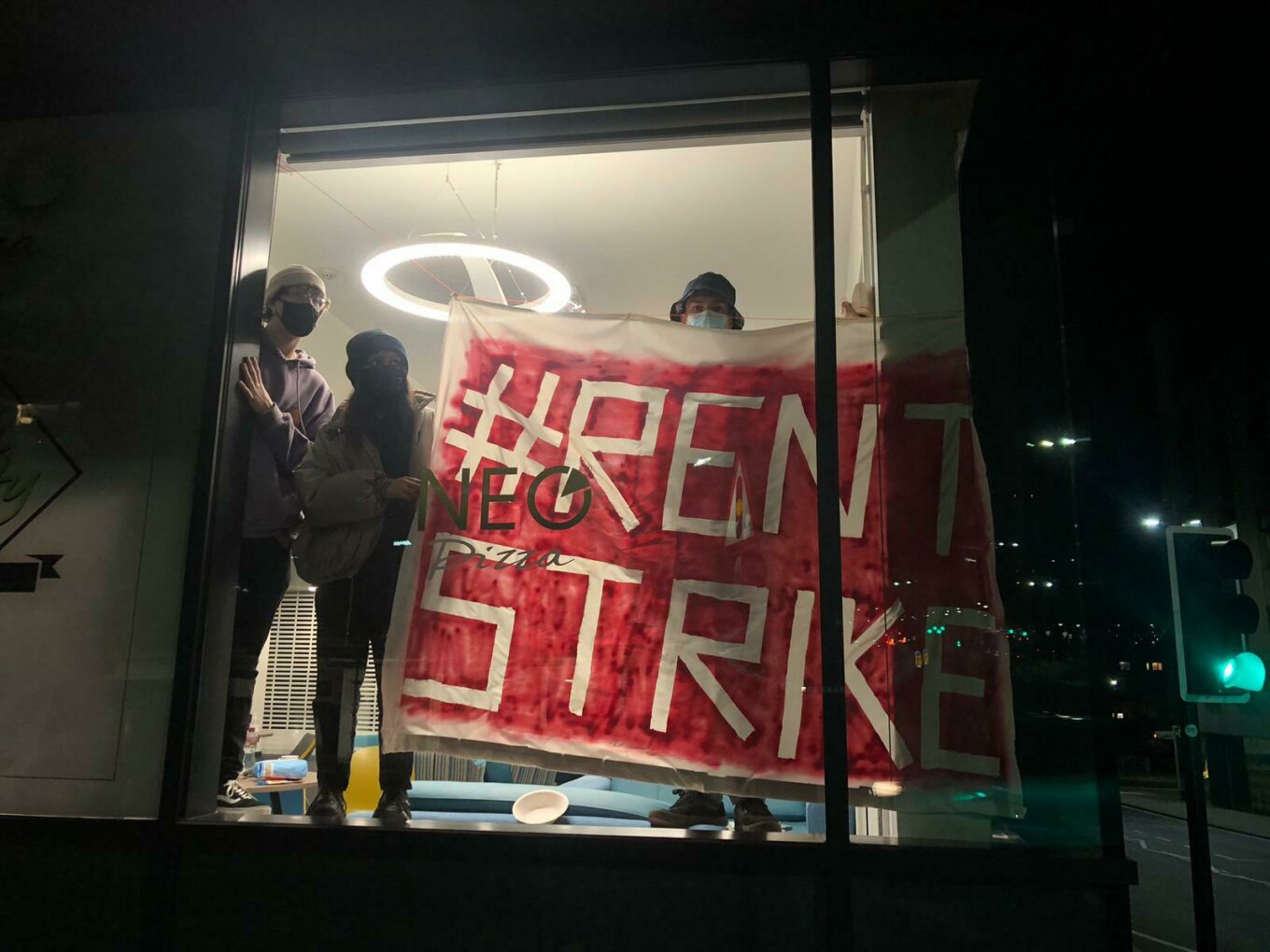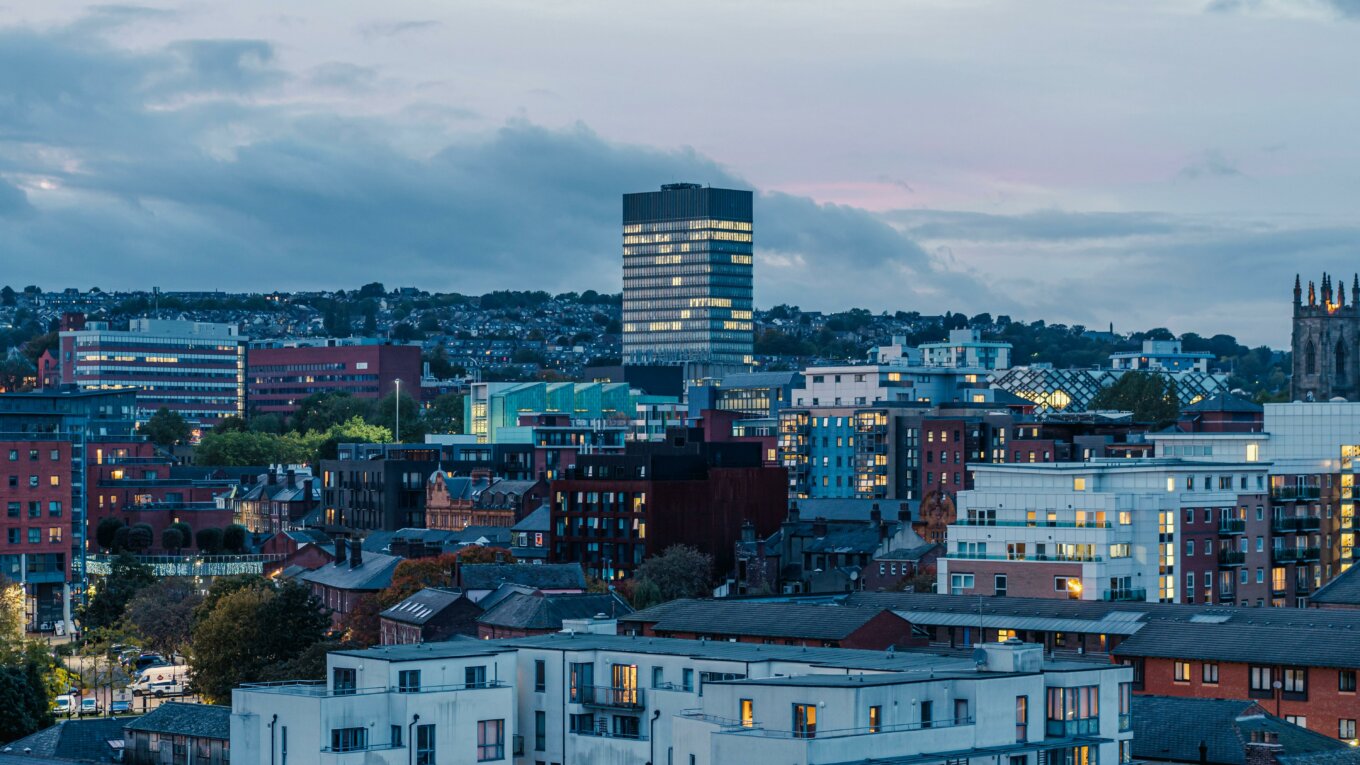The story behind the student campus occupations
Students from both Sheffield universities were part of a recent campaign to protest rent fees and an alleged lack of support for students. Here's why.

Members of SHU Rent Strike occupying the Cantor Building on the first night.
SHU Rent Strike.Over the past few weeks, there have been coordinated, nationwide rent strikes and protests at universities across the UK. These universities include the University of Sheffield (UoS) and Sheffield Hallam University (SHU), as well as the University of Manchester and the University of Nottingham.
In January, more than 45 universities joined the Rent Strike campaign, in what was the biggest national student rent strike in history. The campaign has continued, with students occupying buildings to demand more from their universities.
Although some rent strike groups have managed to win rent money back for those who were unable to return to their accommodation, many more students have taken on significant amounts of rent debt to both private and university landlords.
A recent survey from money advice website Save The Student found that the UK student population had paid nearly £1 billion pounds for empty rooms this academic year. With 43% of surveyed students stating they’d spent less than three months on campus, the anger and outrage around rent fees begins to make a lot more sense.
Why are students leading protests and occupations?
The student experience during this global pandemic has been far from normal, with many facing unprecedented levels of hardship. The pandemic and its subsequent lockdowns have meant that studies have been majorly disrupted, with some students receiving no in-person teaching whatsoever this academic year.
Yet the cost of these studies hasn’t been reduced. Many universities promised their students a ‘blended approach’ to learning, which involves a combination of online and in-person teaching, but with national lockdowns, these courses quickly had to become online-only.
There was a mass testing initiative before the Christmas holidays to allow students to go home, but soon after a national lockdown was announced on 6 January. This meant that even though they were told by the government not to return to university, their rent was still expected to be paid in full.
All this, on top of the stresses of living through a global pandemic, has led to a sharp rise in mental health issues amongst the student population - an issue that was already prominent before the pandemic, but now seems to have worsened.
The National Union of Students recently conducted a survey looking into students’ mental health. They found that over half (52%) reported their mental health was worse than before the pandemic and that 38% were satisfied with the delivery of mental health services at their university. The combination of factors like a lack of in-person teaching and university facilities, paying rent for empty rooms, and a lack of mental health support have led students to rally together.
What’s been happening with the protests in Sheffield?
Students at both Sheffield universities began their occupation of campus buildings on 22 and 23 April. A group of Sheffield Hallam students kicked things off on 22 April by occupying the Cantor Building, with groups making the following demands:
- Open a dialogue with the Rent Strike, listen to what we have to say and take it seriously.
- Threaten to break nomination agreements with halls providers if they do not offer substantial rebates for Term 2.
- Take sexual violence seriously - no more excuses or denials, we have had enough and the uni needs to change.
They are angry that they’re still being made to pay thousands of pounds in rent for accommodation they’ve hardly lived in. Earlier this year, Unite, which owns five university accommodation buildings in Sheffield, said they’d be offering their residents a 50% reduction in their rent fees - but only if they paid the rest up front. Students are also frustrated at the lack of support from universities, with many feeling like they’ve been left to fend for themselves.
During the SHU occupation of the Cantor Building, students reported being physically and verbally assaulted by security staff. They said they were prevented from accessing kitchen and shower facilities, and were escorted by security when attempting to use them. There was also an alleged incident of security locking one of the students inside a classroom, which resulted in students calling the police to force them into unlocking the door. The students continued their occupation, with six more joining on 25 April.
By 7 May, SHU students were served with a disciplinary notice from the university asking them to identify themselves and end the occupation by 11am that day. The occupation of the Cantor Building came to an end on 11 May after students decided the risks of continuing the protest were just too high.

The University of Sheffield occupation followed a similar trajectory, with the protest beginning on 23 April with the occupation of the Arts Tower. UoS students also reported abusive behaviour from security staff, with one evening involving them allegedly locking the fire exits.
They also reported being prevented access to kitchen and shower facilities, as well as people being blocked from delivering food to protesting students.On 30 April, the Rent Strike UoS tweeted: "We have strong reason to believe that, instead of pursuing legal methods, the university's strategy is to deliberately tear down our physical and mental wellbeing to the point of breakdown to flush us out."
Not long afterwards the University threatened protesting students with legal action, and served students with notice of an Interim Possession Order (IPO) hearing scheduled for 7 May.
An IPO, when granted, is a court order that effectively tells people they must leave a premises with 24 hours or be charged with a criminal offence. This is the only university that is attempting to end protests and occupations through the courts. The IPO was granted to the university, which meant students had to end their occupation of the Arts Tower on 8 May.
What do the universities say?
A spokesperson from SHU pointed Now Then to a comment already provided to us on 23 April, saying, “We are committed to continuing dialogue with the rent strike protesters.” They said that they’re also "aware of an incident that occurred on 22 April at the Cantor Building involving a protestor and security officer, and are investigating this.”
The University of Sheffield also declined to add any additional comment.
A spokesperson said, “The University of Sheffield supports the ability of students to express their views peacefully within the law. However the University does not condone occupation of a building which causes disruption for other students.
"We understand this has been an incredibly difficult year for students and throughout the pandemic we have been working hard to support them in the best possible way.
"As part of this continued support, the University has not charged rent and has offered early contract releases to students who are unable to make use of their University owned or managed accommodation due to the government’s restrictions and has also established a £3 million Covid Support Fund for those facing financial difficulties.
"While the University cannot control the decisions of private landlords, we are continuing to work closely with the Students’ Union to ensure we are providing students with the most effective and appropriate support."







